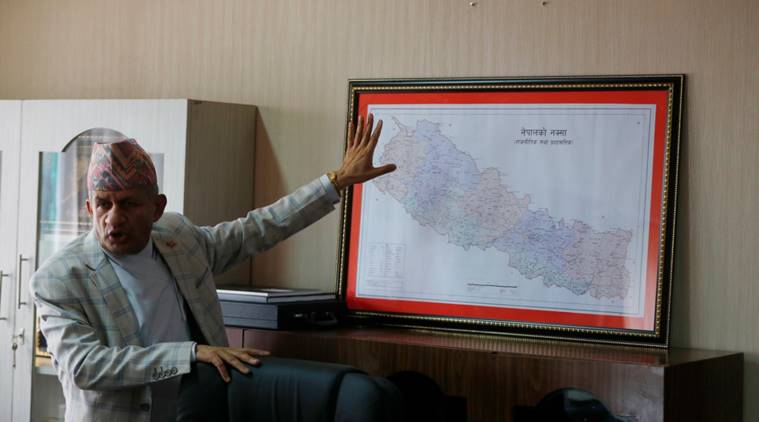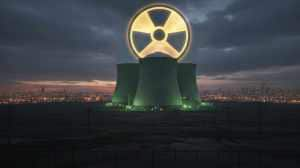Nepal set itself on a collision course with India Thursday after the Upper House unanimously cleared a constitution amendment Bill, endorsing the country’s new map that includes territories with India.
President Bidhya Devi Bhandari gave her assent to the Bill within hours of its passage in the Rastriya Sabha.

This deepens the boundary row with India which has already rejected Nepal’s claim to the areas of Kalapani, Lipulekh and Limpiyadhura in Uttarakhand, saying it is “violative of our current understanding to hold talks on outstanding boundary issues”.
In New Delhi, sources said the government was “disappointed” at the manner in which Kathmandu did not try to create a “conducive atmosphere” and “positive situation”, despite the feelers for talks. The onus, sources said, was on the Nepal government.
In the Rastriya Sabha, 57 of the 58 members — except the Chairman — voted ‘aye’ in favour of the Bill. Chairman Ganesh Prasad Timilsina certified the House resolution.
Read | ‘Roti-beti’ ties in Bihar border villages feel strain of changing ties
The Bill, passed earlier by the House of Representatives, gives Prime Minister KP Sharma Oli the constitutional mandate to “reclaim” the territories from India as promised.
Story continues below this ad
“We must have these areas under our administrative control,” said Radheshyam Adhikary, member of the Opposition Nepali Congress in Rastriya Sabha.
“We had to bring the new map because India, despite having accepted these areas as disputed, included them in its map and unilaterally built a road there,” he said.
This was a reference to the May 8 inauguration of the Dharchula-Lipulekh road on the Mansarovar Yatra trail by Indian Defence Minister Rajnath Singh.
Members of the ruling Nepal Communist Party were more vocal, blaming India for matters coming to a head.
Story continues below this ad
Narayan Kaji Shrestha, former Deputy Prime Minister and Foreign Affairs Minister, said: “We only want that the issue should be settled through talks, based on facts and evidence. Avoiding talks will worsen the situation.”
Read | India pledges to construct sanitation facility at Nepal’s iconic Pashupatinath Temple
Oli did not speak during the House debate on the matter but later, while responding to a debate on the annual budget, said: “The solidarity, with no one opposing the constitution amendment Bill, shows that we stand together on the issue of national unity and that no effort from any side to divide us will succeed.”
With the Bill becoming law, it will be mandatory for the government to use the new official map and the national emblem which has the map.
Story continues below this ad
The Nepal Ministry of Foreign Affairs, meanwhile, indicated that it will clarify to India its efforts to hold a dialogue since last November, soon after India included Kalapani, Lipulekh and Limpiyadhura in its new map published following the bifurcation of Jammu and Kashmir into two Union Territories.
Read | Delhi reaches out to Kathmandu: Pause map process, come to table
“We made written requests twice. All that India said was that it is keen on a dialogue. Till date, it has never given us a clear time frame, officially or unofficially,” Ministry sources said.
Asked about Nepal’s view on the India-China faceoff in Ladakh, sources said “we will maintain a neutral posture, but we sincerely wish that both sides sort it out peacefully and through dialogue.”
Story continues below this ad
In New Delhi, government sources said India had proposed a “video-conference”, phone calls between the Foreign Secretaries, apart from possible visits to India by Nepal’s Foreign Secretary to discuss the boundary issue. Sources said the proposal was sent before the issue was taken up in the Nepal parliament.

 Nepal foreign minister Pradeep Gyawali points to a map of Nepal during an interview in Kathmandu, Nepal (File/AP Photo)
Nepal foreign minister Pradeep Gyawali points to a map of Nepal during an interview in Kathmandu, Nepal (File/AP Photo)






























